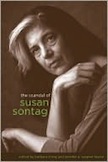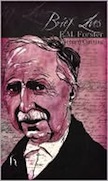 The Scandal of Susan Sontag
The Scandal of Susan Sontag
Edited by Barbara Ching and Jennifer Wagner-Lawlor
Columbia University Press. 264 pages, $24.50
This collection of essays examines the work of Susan Sontag, from her novels and essays to less familiar plays and films, and even includes a discussion of Annie Leibovitz’s controversial photos of the writer. In “Some Notes on ‘Notes on Camp,’” Terry Castle suggests that Sontag’s famous essay was her rather coy way of announcing her own homosexuality, by including as camp certain actresses known for either being lesbian or playing lesbian roles. Castle links the love of camp to Freud’s conception of the “family romance,” the child’s fantasy that her real parents are more glamorous and sophisticated than the ones she’s forced to live with now. Gays and lesbians, Castle explains, having experienced great trauma growing up and relying on this fantasy more than most children, can use camp to “mediate between childhood outrage and a more sophisticated adult self.” By treating as beautiful things normally considered grotesque, gays can exercise a sort of control over the ugliness of their own childhood. In “Metaphors Kill,” Jay Prosser explores Sontag’s essay “Against Interpretation” and her books Illness as Metaphor and AIDS and Its Metaphors, as well as her son David Rieff’s memoir Swimming in a Sea of Death. Sontag argued so forcefully against using metaphors to describe illness because she wanted patients to face the reality of their situation. However, as her son reveals, she feared death and refused to think about it, making her final suffering from cancer all the more painful because she kept trying to stave off the end. Perhaps, Prosser argues, metaphors might have given her comfort and acceptance to face her death. As Prosser writes, “Metaphors may kill but they also make some things sayable and bearable.” The Scandal of Susan Sontag offers revealing insights into the work of one of America’s most famous and provocative intellectuals.
Charles Green
 Brief Lives: E. M. Forster
Brief Lives: E. M. Forster
by Richard Canning
Hesperus Press. 120 pages, $11.50
As Andrew Holleran said in these pages a couple of issues ago in a review of two new E. M. Forster books, “all biographies are selective.” So, what has Richard Canning, the very able British queer theorist and literary critic, selected in his highly readable biography? He does a good job of covering what we know already from the definitive two-volume P. N. Furbank biography, E. M. Forster: A Life (1977–78). But there is new information here, such as previously unpublished letters and years of BBC radio addresses. We learn that Forster was an unhappy student, at least until his university years. An important realization occurred to him during his years at Cambridge, where “they taught the perky boy that he was not everything, and the limp boy that he might be something.” A limp boy himself, Forster was, of course, interested in perky boys, foreign and working-class when possible. He spent many years imagining what love and sex were like; he wrote the sex scenes in his gay novel Maurice (written around 1913; published posthumously, by Forster’s friend Christopher Isherwood, in 1971) before he’d ever had sex. (He revised the scenes afterward.) Canning observes that “Forster traveled without ceasing.” His chapter “England, Alexandria and Beyond—1913–24” is the best part of the book, filling in the back story of Maurice and the maturation of Forster as a man and a writer. The less persuasive material concerns Isherwood: Canning is too rushed and devotes too little time and space to the complexities of that significant friendship. E. M. Forster: Brief Lives is a good start for someone interested in a great writer. If it leaves you yearning for more, you can find it in Frank Kermode’s Concerning E. M. Forster and Wendy Moffat’s new, homocentric biography, A Great Unrecorded History: A New Life of E. M. Forster.
Chris Freeman





